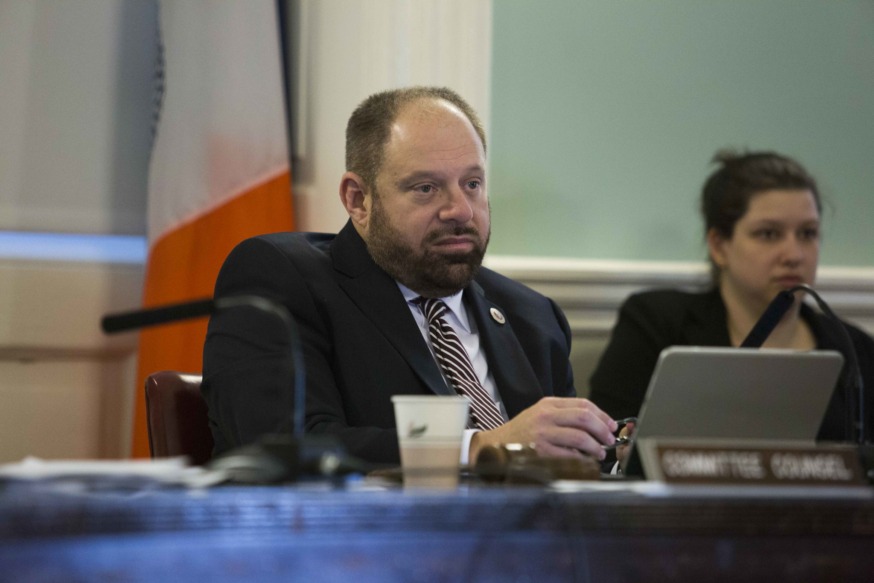
Former Council Member Rory Lancman (NYC Council via Flickr)
Nov. 25, 2020 By Allie Griffin
The special election for the Central Queens council seat vacated by Rory Lancman is starting to take shape with at least 10 candidates announcing their bids.
The candidates have filed to run in the Feb. 2 election to fill the 24th Council District seat representing Kew Gardens Hills, Fresh Meadows, Hillcrest, Pomonok, Jamaica Hills and Briarwood. The seat opened when Lancman resigned Nov. 4 to take a position within Governor Andrew Cuomo’s administration.
The winner of the nonpartisan special election will serve for less than a year — to finish Lancman’s term that was set to end on Dec. 31, 2021.
The successful candidate, however, will have to return to the campaign trail to defend the seat ahead of the November 2021 general election.
Candidates in the running include former Democratic Council Member James Gennaro, who represented the 24th District for three terms through 2013 and has established a career in environmentalism and sustainability.
Also hoping to replace Lancman is progressive activist Moumita Ahmed, who recently ran for Democratic District Leader in Assembly District 24 . She has earned endorsements from well-known progressives such as Flushing Assembly Member Ron Kim, Brooklyn State Senator Julia Salazar and former gubernatorial candidate Cynthia Nixon.
Other candidates include small business owner and community organizer Deepti Sharma, New York’s first Indian-American female Democratic District Leader Neeta Jain, attorney and President of the Queens County Women’s Bar Association Soma Syed and healthcare executive Dilip Nath who previously ran for the seat.
Mohammed Islam and Mujib Rahman are also in the running as well as Angelo King, according to campaign filings.
Republican District Leader Philip Grillo has also thrown his hat into the race, the Queens Eagle reported — though candidates in a special election do not run under political parties, such as Republican or Democratic.
The special election will be the first run of ranked choice voting in New York City.
Voters in the special election will have the option to rank up to five on the candidates in order of preference on their ballot. They can also just vote for their top choice.
After polls close, the candidate with the simple majority of first-choice votes — more than 50 percent — wins outright.
However if no candidate secures a majority, the candidate with the least amount of first-pick votes is knocked out of the running. Voters who picked that candidate as their number-one choice will then have their second choices tabulated. The process is repeated for the remainder of candidates until just two candidates are left. The candidate with the most votes wins the election.
Ranked choice voting — which goes into effect next year in New York City — will only be used in local primary elections and special elections and not in general elections.
Ranked choice voting is meant to help municipalities avoid costly run-off elections.






